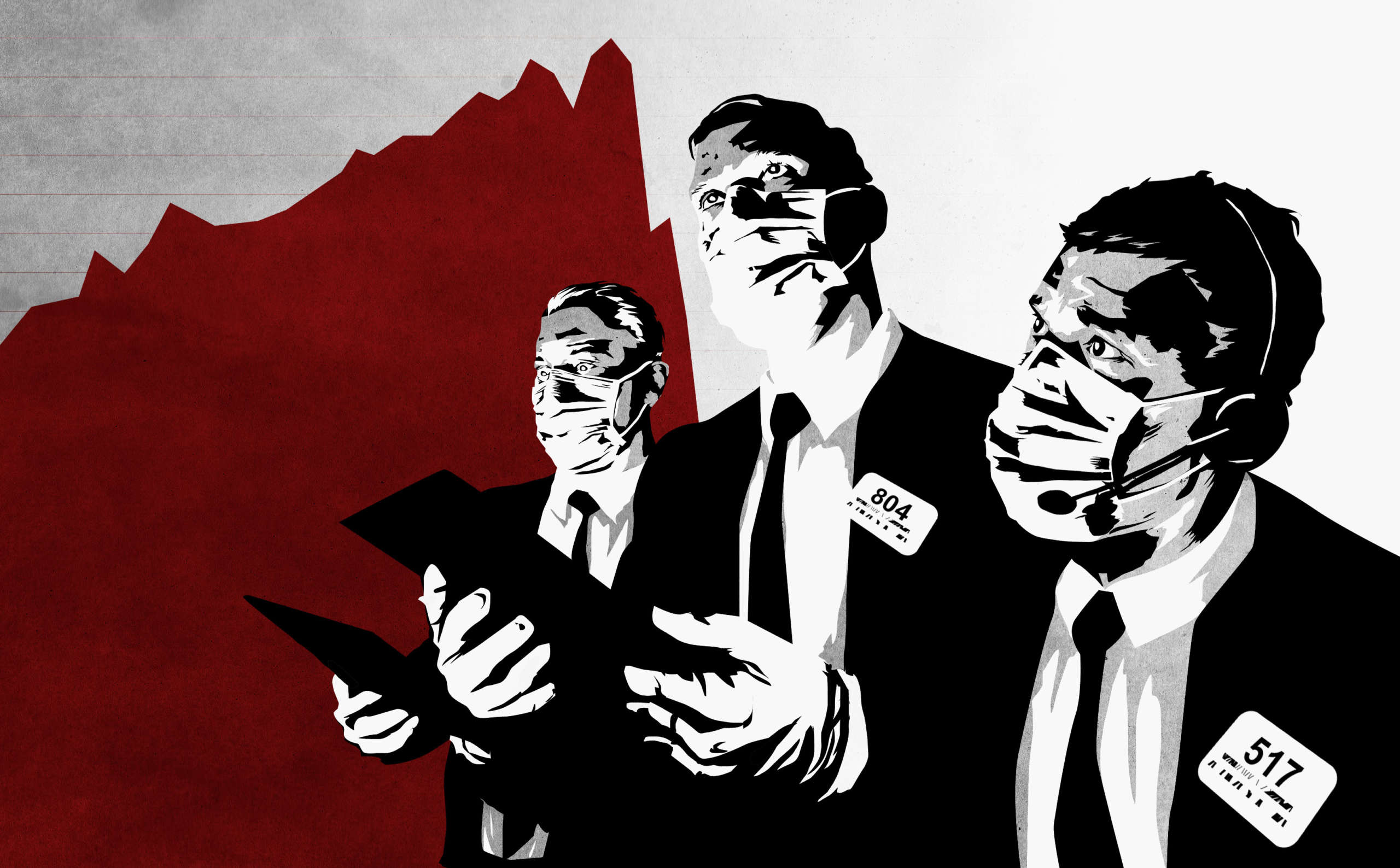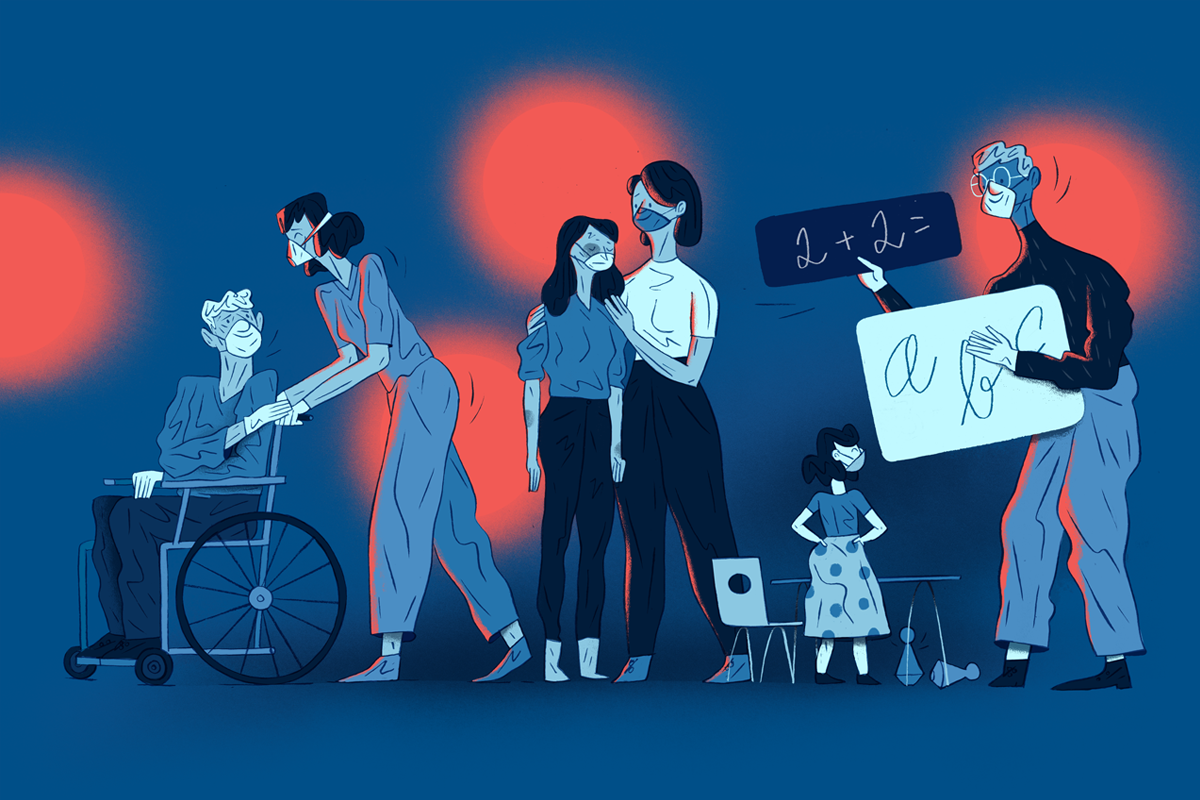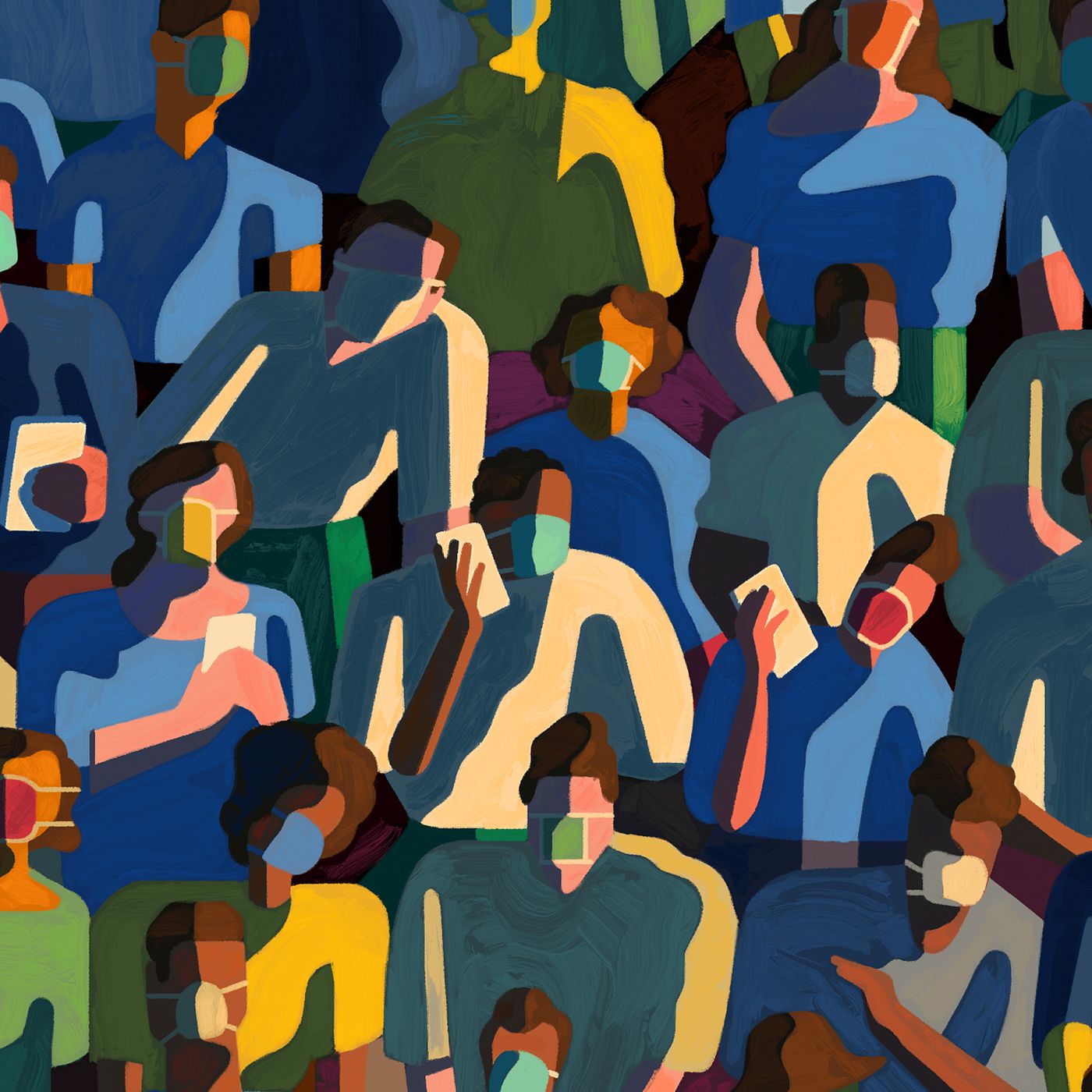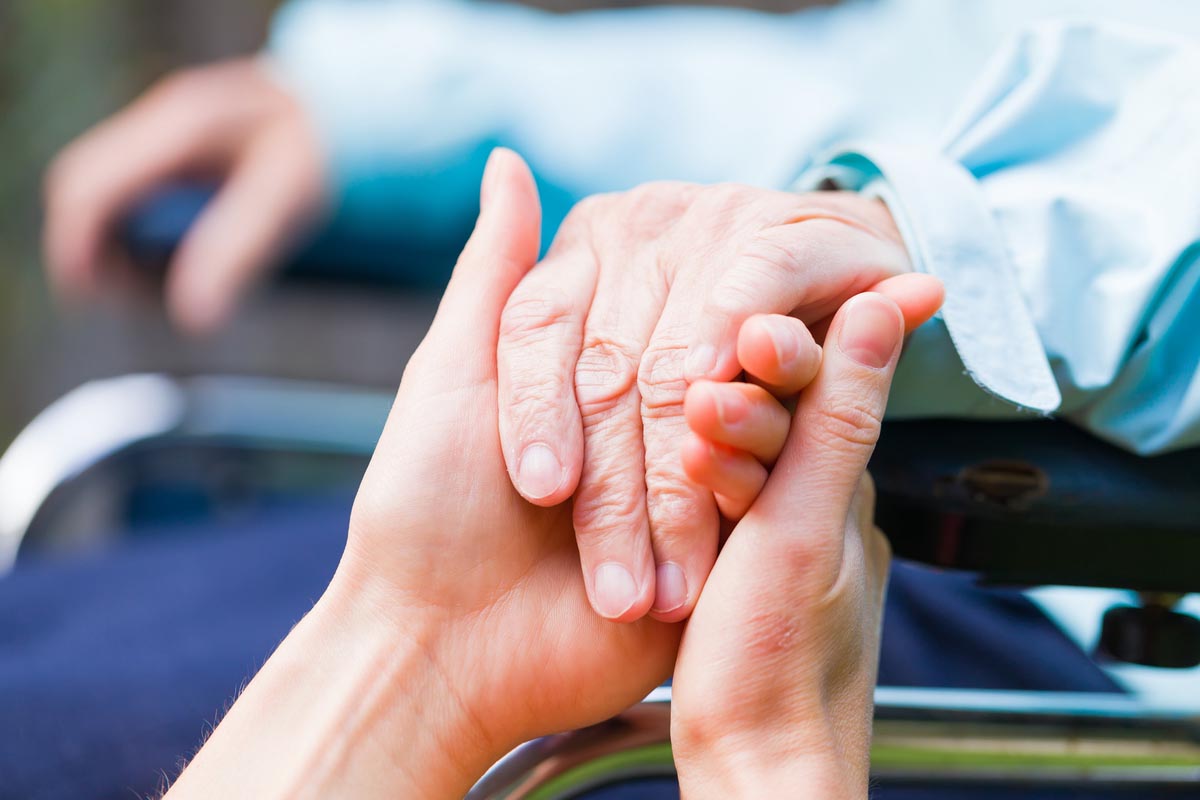Kindness is to Care and Caring is to be Kind. Sadly this is what our Values-free World has Forgotten.
To survive and to lead a better, healthier life we need to re-discover the values we once knew and held dear!
‘Covid-19 unintentionally attacks the very premise and idea of neoliberal principles.’

‘The social contract has been all but eliminated while notions of the public good, social obligations and democratic forms of solidarity are under attack...Neoliberal capitalism is the underlying pandemic feeding the current global shortage of hospitals, medical supplies, beds and robust social welfare provisions...The financial crisis of 2008 made visible the plague of neoliberalism that has for over 40 years ravaged the public good...Crises can have multiple outcomes resulting in a resurgence of resistance movements at numerous levels willing to fight for a more just and equitable society.’- Henry A. Giroux , The COVID-19 Pandemic Is Exposing the Plague of Neoliberalism
‘The sad irony is that while the UK and other countries are experiencing a crisis of care, care may be precisely what is needed in order to ward off the major looming catastrophes of our time.’- Catherine Rottenberg, University of Nottingham
Think about it, we may all get sick, we will all get old, weak and vulnerable. We will all need love, support, empathy, caring and humanity.
It is, thus, incumbent on us, to find out more on why and how there is this pandemic crisis in Caring in the world and how it may be reversed.
We must all know what it means to be human.

Photo: JARED RODRIGUEZ / TRUTHOUT
‘For over three decades, neoliberalism has ruled the roost across most of our world. Peddled by the heirs of Thatcher and Reagan, and benefitting multinationals and wealthy investors to the tunes of trillions, this brand of free-market economics, consumer choice, and unfettered competition is perhaps best known for the destruction of the many public services that we hold dear.
The Covid-19 crisis, however, has fully exposed why neoliberal economies are unfit to deal with a pandemic such as this.’- GUE/NGL, European Parliament
“During this health crisis, the people of Europe have rediscovered the importance of public services and the role of the state.
“Now, as the health crisis becomes an economic crisis, the liberals are already using all of their propaganda to convince people that we will need to cut public services to pay for our debts.
“It would be such a sad irony if we were to allow the response to this crisis to undermine the very same public services that have, quite literally, saved our lives.”-José Gusmão MEP (Bloco de Esquerda, Portugal), GUE/NGL group’s coordinator on the European Parliament’s economics committee

“Care work has zero glamour, it is almost an invisible job. That’s quite a tragedy.”- Photo and quote
Nota bene
Yesterday I posted a Blog about the crisis and the tragic consequences of the privatised, deregulated care for the elderly in Canada's long-term care homes.
Today I am going to expand my observation by saying a bit more on the subject of health and social care in general, and in Britain in particular. Here we know that, despite the excellent work by our NHS and social care workers and staff, the provision, the care model, and values provided by the neoliberal government is nothing short of tragic and scandalous. As well as highlighting the disaster, I want to note why and how we ended up where we are, when providers are making a killing- that is to say, they are making a huge amount of money- whilst many in need of healthcare- young and old- are facing untold tragedies all around.
To do this I need to ask you to come with me on a journey of discovery on why and how we have fallen so short in our caring sector, amongst others. We need to know what it means to be human, and why we now live in a world that by and large has lost touch with human values of love, sympathy, empathy, compassion and caring, where money and more money reins supreme.
To achieve this I can do no better than recall what I had written a few years back, in simple words, jargon-free, coming from my heart, expressing my fears and anxieties on what was going on in our names to promote a destructive and inhumane ideology, that now has come to haunt us into self-destruction, that has fractured our ability to know anymore what it means to be human.
The Broken Economic, Social, Spiritual Model
(First published as an email to the GCGI members in May 2011)
“Do you remember that Margaret Thatcher, the so-called Iron Lady!! She told the Brits that she was going to put the “Great” back into the “Great” Britain. Do you remember? Then, she told us this can only happen if we accept and implement the “Washington Consensus”, the so-called dreaded neo-liberalism. She told us that there was no alternative. She told us we will all prosper and develop more fairly and equitably. She won election after elections. Everything was privatised, deregulated, self-regulated. Industry, manufacturing, (the real economy) was destroyed. Instead, the banks and the bankers were encouraged to rule the world. The economists with no principles and values were “bought” and the business schools, such as Harvard and Columbia were showered with money to act as “Cheerleaders” for the dreaded neoliberalism (see the Inside Job for evidence). Communities were dis-mantled and dis-organised. We were told that there is nothing as a society and community. We are all in it just for ourselves, we were told. Destructive competition at the expense of life-enhancing cooperation, collaboration and dialogue was greatly prompted. We were told to say no to love, kindness, generosity, sympathy and empathy and say yes to selfishness, individualism and narcissism, as these values will fire the engine of capitalism and wealth creation! In short, the hell with the common good, we were encouraged to believe.
We were brained-washed. Our other Prime Ministers repeated her nonsense and have carried on her footsteps. It is now over 30 years since the neo-liberalism experiment in Britain. Are we any “Greater” than we were in 1979? Are we any fairer or more equitable? The country is nearly bankrupt, with public and private debt at unprecedented levels, with greatest levels of poverty and wealth disparity ever. The house of neo-liberal capitalism is now at its nadir of decadence.”
You see, all those interested in life’s bigger picture, have been saying the same, over and over. The neo-liberals are not in touch with humanity. They will prostitute all in the interest of profit maximization, cost minimization, highest return to the shareholders, and the biggest and juiciest bonuses for the CEOs and their lackeys.” -The Broken Economic Model
To highlight the significance of what I have noted above, I now wish to draw your attention to the following two excellent articles:
The first one is an article by Catherine Rottenberg, Associate Professor, University of Nottingham, which was published in December 2018 in The Conversation.
‘Neoliberalism has led to a crisis in care – and we urgently need to solve it.’
‘Infant mortality is on the rise in the UK, while life expectancy for both men and women has stalled and is even dropping in some areas. In 2017, the number of homeless families and individuals placed in temporary accommodation rose by nearly 80,000, a 60% increase since 2012. And, yet, these are only some of the recent manifestations of the acute care crisis Britain is facing today.
While the figures in the United States, Canada, France, Holland and other European countries are different, there, too, a care crisis has been simmering for a very long time. But the UK crisis has intensified and taken on new forms over the past few decades, as the UN envoy’s report on poverty in Britain so starkly reveals. This is due to a number of factors, some of which are quite straightforward and even particular to Britain. Years of NHS underfunding, massive cuts to council budgets, and the grossly inadequate infrastructure necessary to address the needs of an expanding elderly population are perhaps the most obvious.
Other factors are less so. For instance, more women and mothers have joined the paid workforce at the same time that childcare and the care of the elderly are being privatised, often becoming prohibitively expensive as a result. This has added extra economic and emotional stress to many women and families. Meanwhile, care professions continue to be grotesquely undervalued, while care workers often do not have job security. Even when they do, they are grossly underpaid.
The sad irony is that while the UK and other countries are experiencing a crisis of care, care may be precisely what is needed in order to ward off the major looming catastrophes of our time.
Neoliberalism colonises care
The care crisis should not simply be understood as the outcome of particular austerity programmes or even the steady erasure of the welfare state. This crisis is inextricably linked to the entrenchment of neoliberalism.
Political theorist Nancy Fraser has shown that with the rise of financialised capitalism, responsibility for care work has devolved almost completely onto families and communities. This has happened at the very moment when the “two-earner” family is becoming a necessity and the gig economy is producing ever more precarious work and workers.
But neoliberalism is not merely an economic system of financialised capitalism. Rather, it is also a form of reason that remakes everything into the image of the market. This kind of reason, as I show in my work on neoliberal feminism, encourages us to perceive ourselves through the lens of calculative metrics. It incites us to organise every social, political and even affective aspect of our lives as though we are an Excel spreadsheet. The value of people, the Earth’s resources, and all other living things are increasingly being judged by market categories such as profitability, dividends, and value appreciation — precisely like stock portfolios.
Consider the British education system. Most schools have stopped teaching children how to think and are focused, instead, on preparing them for “the test” since these scores influence their rankings according to Ofsted metrics.
Perhaps most brutally, these neoliberal market metrics now inform the actual care of the most vulnerable. As the journalist Gary Younge has written, local councils, which used to provide more comprehensive care for children at risk, are now inviting private companies to take over: “The more troubled children are, the more money companies get, and children go not where they most need to be, but where most profit can be made from them.”
Care, then, has been reduced to profit. And Britain is in no way unique.
Overcoming the care crisis
The terrifying reality is that neoliberalism is rapidly creating a world in which it is becoming impossible to imagine possible registers other than that of the market to evaluate our interpersonal relations or the different kinds of work that we do.
And so it has become more urgent than ever to draw on all of the alternative resources available — new and old, theoretical and activist — in order to push back against this devastating form of neoliberal reason. One way this can be done is precisely through reclaiming the term “care”.
This is already taking place on the margins. Political movements, non-governmental organisations, and academics are increasingly focusing on mobilising the idea of care in order to advance social change. I am myself part of a group of researchers who believe that care, rather than liberation, has become the principle political issue of our time. In our collaborative research we query how we might disentangle care work from its gendered history while concurrently taking into account the ambivalences that so often accompany practices of “taking care” of others.
Care as the basis for a new progressive politics is perhaps most clearly articulated in Naomi Klein’s 2017 book, No Is Not Enough, where she describes her participation in a coalition of organisations, movements, academics and activists that came together and wrote the Leap Manifesto, a people’s platform. This manifesto mobilises people around a politics “based on caring for the Earth and for one another”. It is about the need for a shift from a system based on endless taking — from the Earth and from one another — to a culture based on caretaking.
The envisioned culture of caretaking is one in which everyone is valued, and we don’t treat people or the natural world as if they were disposable. Today, it is not enough to demand an end to austerity policies in order to “solve” the care crisis. The crisis is much more profound than that. We must mobilise around the idea of caretaking, understanding that it is only through such a politics that we will be able to sustain the Earth and all the beings living upon it.’- Catherine Rottenberg, ‘Neoliberalism has led to a crisis in care – and we urgently need to solve it’
And now the second article which is by George Monbiot, Guardian columnist and author.
‘Tory privatisation is at the heart of the UK's disastrous coronavirus response.’*
‘From PPE failures to care home tragedies, this crisis has exposed the pernicious role of corporate power in public policy.’
‘Amid the smog of lies and contradictions, there is one question we should never stop asking: why has the government of the United Kingdom so spectacularly failed to defend people’s lives? Why has “this fortress built by Nature for herself against infection”, as Shakespeare described our islands, succumbed to a greater extent than any other European nation to a foreseeable and containable pandemic?
Part of the answer is that the government knowingly and deliberately stood down crucial parts of its emergency response system. Another part is that, when it did at last seek to mobilise the system, crucial bits of the machine immediately fell off. There is a consistent reason for the multiple, systemic failures the pandemic has exposed: the intrusion of corporate power into public policy. Privatisation, commercialisation, outsourcing and offshoring have severely compromised the UK’s ability to respond to a crisis.
Take, for example, the lethal failures to provide protective clothing, masks and other equipment (PPE) to health workers. A report by the campaigning group We Own It seeks to explain why so many doctors, nurses and other hospital workers have died unnecessarily of Covid-19. It describes a system built around the needs not of health workers or patients, but of corporations and commercial contracts: a system that could scarcely be better designed for failure.
Four layers of commercial contractors, each rich with opportunities for profit-making, stand between doctors and nurses and the equipment they need. These layers are then fragmented into 11 tottering, uncoordinated supply chains, creating an almost perfect formula for chaos. Among the many weak links in these chains are consultancy companies like Deloitte, whose farcical attempts to procure emergency supplies of PPE have been fiercely criticised by both manufacturers and health workers.
At the end of the chains are manufacturing companies, some of which have mysteriously been granted monopolies on the supply of essential equipment. These private monopolies have either failed to meet their contracts, or provided defective gear to the entire NHS, like the 15m protective goggles and the planeload of useless surgical gowns that had to be recalled.
Instead of stockpiling supplies, as emergency preparedness demands, companies in these chains have been using just-in-time production systems, whose purpose is to cut their costs by minimising stocks. Their minimised systems could not be scaled up fast enough to meet the shortfall. Where there should be a smooth, coordinated, accountable programme, there’s opacity, byzantine complexity and total chaos. So much for the efficiencies of privatisation.
The pandemic has also exposed the privatised care system as catastrophically unfit and ill-prepared. In 1993, 95% of care at home was provided publicly by local authorities. Now, almost all of it – and almost all residential care – is provided by private companies. Even before the pandemic, the system was falling apart, as many care companies, unable to balance the needs of their patients with the demands of their shareholders, collapsed, often with disastrous consequences.
Now we discover just how dangerous their commercial imperatives have become, as the drive to make care profitable has created a fragmented, incoherent system, answerable sometimes to offshore owners, that fails to meet basic standards, and employs harassed workers on zero-hour contracts. If there is one thing we have learnt from this pandemic, it’s the need for a publicly owned, publicly run National Care Service – the care equivalent of the NHS.
It could all become much worse, due to another effect of corporate power. A report by the Corporate Europe Observatory shows how law firms are exploring the possibility of suing governments for the measures they have taken to stop the pandemic. Many trade treaties contain a provision called “investor state dispute settlement”. This enables corporations to sue governments in opaque offshore tribunals, for any policies that might affect their “future anticipated profits”.
So when governments, in response to coronavirus, have imposed travel restrictions, or requisitioned hotels, or instructed companies to produce medical equipment or limit the price of drugs, the companies could sue them for the loss of the money they might otherwise have made. When the UK government commandeers private hospitals or the Spanish government prevents evictions by landlords, and stops water and electricity companies from cutting off destitute customers, they could be open to international legal challenge. These measures, which override democracy, have already hampered attempts by many governments, particularly of poorer nations, to protect their people from disasters. They urgently need to be rescinded.
The effectiveness of our health system is also threatened by the trade treaty the UK government hopes to sign with the US. The Conservatives promised in their manifesto that “the NHS is not on the table” in the trade talks. But they have already broken their accompanying promise, “we will not compromise on our high environmental protection, animal welfare and food standards”. Earlier this month, they voted that measure out of the agriculture bill. US companies are aggressively demanding access to the NHS. The talks will be extremely complex and incomprehensible to almost everyone. There will be plenty of opportunities to give them what they want while fooling voters.
Boris Johnson’s central mission, overseen by Dominic Cummings, is to break down all barriers between government and the power of money. It is to allow private interests to intrude into the very heart of government, while marginalising the civil service. This helps to explain why Johnson is so reluctant to let Cummings go. The disasters of the past few weeks hint at the likely results.’-*This article by George Monbiot was first published in the Guardian on Wednesday 27 May 2020.
To reverse this inhumanity we need a different model of education and we need a different
economic value and economy. Full stop. Carpe Diem!

Photo: Vox
At a time of profound crises there must be an opportunity for new vision, new understanding and new thinking. There is a desperate need for new practical ways of relating in an increasingly interdependent global community: a time to re-introduce spirituality, ethics, civility, kindness, humanity and the common good into the debate on globalisation, economics, politics, business, education, international relation and much more.
Surely the time is now to rise and challenge the falsehood and the inhumanity of the ideology that since the early 1980s has cheated and humiliated us by monetising all aspects of our lives, and has stopped us from knowing what it means to be human:
The Broken Economic, Social and Spiritual Model
Death and Destruction on Brothers’ Road to Serfdom
Neoliberalism destroys human potential and devastates values-led education
Kindness to Heal the World- Kindness to Make the World Great Again
The Value of Values: Values-led Education to Make the World Great Again
Wisdom and the Well-Rounded Life: What Is a University?
Brexit, Trump and the failure of our universities to pursue wisdom Details
The Journey to Sophia: Education for Wisdom
What might an Economy for the Common Good look like?
Co-creating The Caring World We Want in the Interest of the Common Good

Photo: AgingInPlace
It’s time to deliver on the goals we’ve set for a more peaceful, resilient, kinder and fairer world
